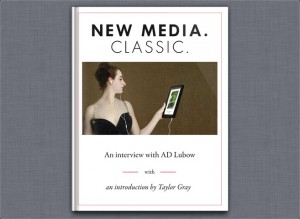In a recent column about the state of education in America, Tom Friedman wrote:
“Race to the Top said to all 50 states, we have a $4.35 billion fund that Washington will invest in the states that come up with the best four-year education reform plans that have these components: 1) systems for data-gathering on student performance, dropout rates, graduation rates and post-graduation college and vocational school success, so schools are held accountable for what happens to their students; 2) systems for teacher and principal evaluation and support, as well as systems to reward great teachers, learn from their best practices and move out those at the bottom — essentially systems that help elevate teaching into an attractive profession; 3) systems that propose turning around failing schools by changing the management and culture; 4) systems that set college- and career-ready, internationally benchmarked standards for reading and math.”
After far-reaching research and planning, the College Board and the National Association of Secondary School Principals (NASSP) have jointly launched Leading Success, an independent web toolkit for educators bound to become a major impetus to all of the above reforms. (And it’s safe to say it cost a lot less that $4.35 billion.)
When the College Board and the NASSP got together to create the site, they decided to tell the story of eleven high school principals who, against all odds, had either turned a failing school around or successfully created new one. The site showcases these principals’ best practices in a combination of short video profiles, tailored group activities, and practical, applicable research. For a change, the so-called underprivileged schools are being given a chance to prove that if troubled schools can succeed, perhaps everyone else should pay attention and learn from them.
So, what’s the best way to use and analyze data? Simple: ask students and teachers to become stakeholders in the process by collecting and analyzing it for themselves. The result: data becomes a reward, not a punishment. Enlightened principals win the trust of teachers. As one teacher put it: “In our school, if you get in trouble, you don’t hide. You get help.”
It’s the data that shows the way to improvement, through student exit tickets, student-run self-help conferences, data-driven peer development and so much more. After all, only after you have measured and quantified a school problem or need can you decide what path to take. And when a school gets on the right course, it’s on its way to creating a culture of learning—not just for students, but for teachers, parents and administrators as well. And all this learning leads to discovery—where hidden pools of talent are revealed and developed to everyone’s advantage.
What is AD Lubow’s interest in all of this? As a leader in short-form Internet video content for social change and public good, we were chosen by the College Board and NASSP to travel the country for nearly a year filming these schools for Leading Success. We hope the nation’s educators will learn as much as we did, and go on to teach even more. Tom Friedman should take note—the upward spiral begins here.







